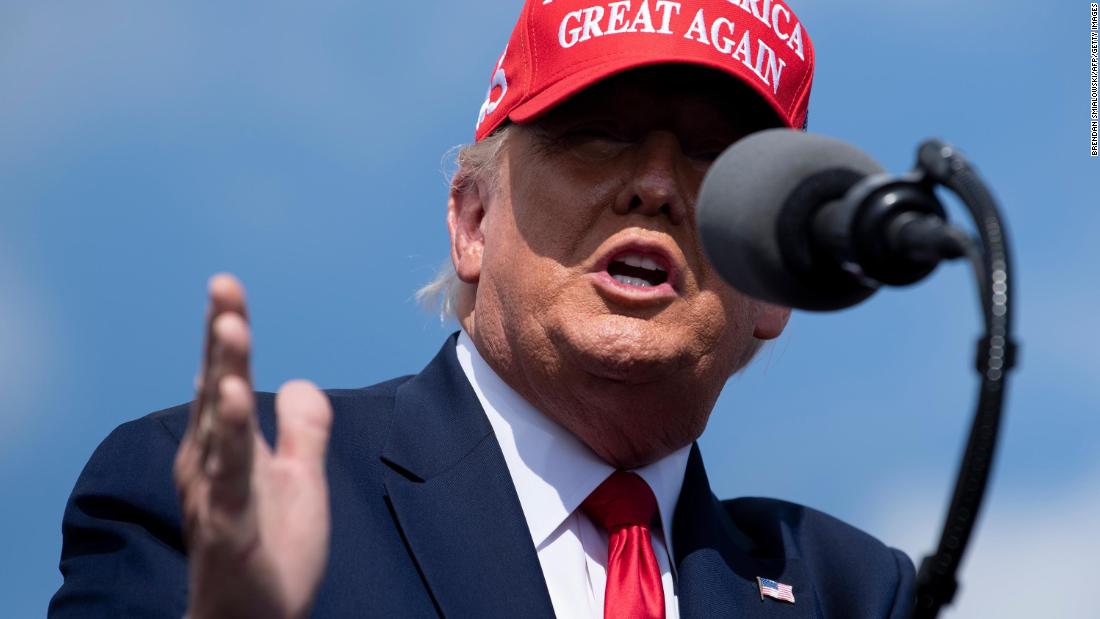
President Donald Trump's administration has already rocked confidence in the US-led international order to such an extent that experts fear the damage done to global democratic norms could take decades to restore.
From befriending autocratic strongmen to undermining multi-national institutions -- and even questioning the legitimacy American democracy -- Trump presided over a deliberate shift in the reliability of Reagan's "shining city on a hill."
"He's normalized things that were taboo. If any other Western leader acted like Trump, they'd be marginalized," said Nanjala Nyabola, a political analyst based in Nairobi. "As leader of one of the most powerful nation on earth, he's been able to behave with complete disregard for the institutions and norms that rely on good faith and trust in the international community. Undercutting that will be Trump's lasting legacy."
Perhaps the clearest examples of Trump's apparent disdain for democracy can be seen in his admiration for autocrats and authoritarians elsewhere. He has called the Crown Prince of Saudi Arabia a "friend of mine" who is doing a "really spectacular job". Saudi citizens do not get to vote and are ruled by a royal family who have spent decades presiding over human rights abuses.
He has called North Korean dictator Kim Jong Un a "real leader" with whom he gets on "really well". North Korea is probably the worst example of a dictatorship on earth, with dissidents imprisoned in gulags and opponents performatively executed by a ruling family who are deified in state media.
Trump's love of strongmen doesn't stop with dictators. He's also applauded authoritarians in pseudo or partial democracies. He congratulated Russia's President Vladimir Putin and Turkey's Recep Tayyip Erdoğan on electoral triumphs that were declared by international electoral observers to be lacking in genuine competition and not fought fairly, respectively. In the case of Turkey, the vote was a constitutional referendum which handed Erdogan sweeping new powers.
"When the President of the United States congratulates authoritarians for winning unfair elections or calls genuine dictators his friend, it gives those leaders the propaganda win of an endorsement from the supposed moral leader of the world," says Nic Cheeseman, professor of democracy at the University of Birmingham. "When you combine these endorsements with Trump's reduced presence on the world stage, he has created space for strongman to behave even more aggressively at home and internationally."
Trump has shown little interest in taking autocrats to task, even for grievous abuses. When journalist Jamal Khashoggi was murdered by a Saudi hit squad, Trump gave the Crown Prince a pass, saying the Middle East was "a vicious, hostile place." After Russia meddled in the 2016 US election, Trump repeatedly refused to condemn Putin. And at a G7 summit last year, Trump reportedly referred to Egyptian President Abdel Fattah el-Sisi -- a key US ally long accused of human rights abuses -- as "my favorite dictator."
Over the past four years, Trump has also withdrawn from international agreements and questioned the relevance of international institutions that have historically relied on America's political and financial support.
His actions have the direct and immediate impact of reducing the effectiveness of multilateralism. "When Trump pulls out of the World Health Organization in the middle of a pandemic and accuses it of working with China, he risks destroying the long-term credibility of international bodies in dealing with global crises," says Cheeseman. "When he pulls out of treaties like the Paris climate accord, he reduces the international community's ability to ask a country to stop chopping down trees. If the US is no longer a stakeholder, why should anyone else be?"
Nyabola thinks that the long-term impact of Trump's unilateralism carries two significant risks. First, his criticisms of institutions like NATO and the UN could "unravel decades of work that went into creating forums built on trust and honestly." Second, she believes that his unrestrained style of leadership has "changed international expectations of the office of president." Those expectations might include standing beside democratic nations when their independence is threated, or protecting Western security interests and promoting stability, rather than befriending and congratulating hostile actors who seek to undermine these principles.
This creates a problem for those who succeed Trump -- either now or in four years -- who would like to present his presidency as an aberration. "His rhetoric and behavior have changed what friends and enemies can claim to expect from a US president," says Jennifer Cassidy, a diplomatic scholar at Oxford University. "This means a country like Iran now has a free pass to say they will never negotiate with the US again. What is the point, they can credibly claim, if someone like Trump comes along again and rips it all up?"
Trump's transformation of America's global standing will cast a shadow over whoever eventually replaces him as president. If that's Joe Biden this January, it's likely he will try and restore some of America's international relations from day one. The difficulty he faces is, no matter how loudly he champions returning to normal, Trump happened once and the rest of the world is aware he could happen again. "Trump 2.0 could be a younger, more intellectually coherent prospect. They could have a more overt desire to tear apart the post-war world order," says Cheeseman.
No matter how much those who revered the American-led world order might want a new administration to flick a switch which undoes the past four years, it's going to take time for the US to be fully trusted by allies again. And while it rebuilds that trust, those who oppose Western democracy will continue to occupy the space that Trump afforded them when he vacated his post as leader of the free world.
"four" - Google News
October 31, 2020 at 09:22AM
https://ift.tt/2HHBgN7
Four years of Trump has made the world less safe, and the damage might be irreversible - CNN
"four" - Google News
https://ift.tt/2ZSDCx7
https://ift.tt/3fdGID3

No comments:
Post a Comment